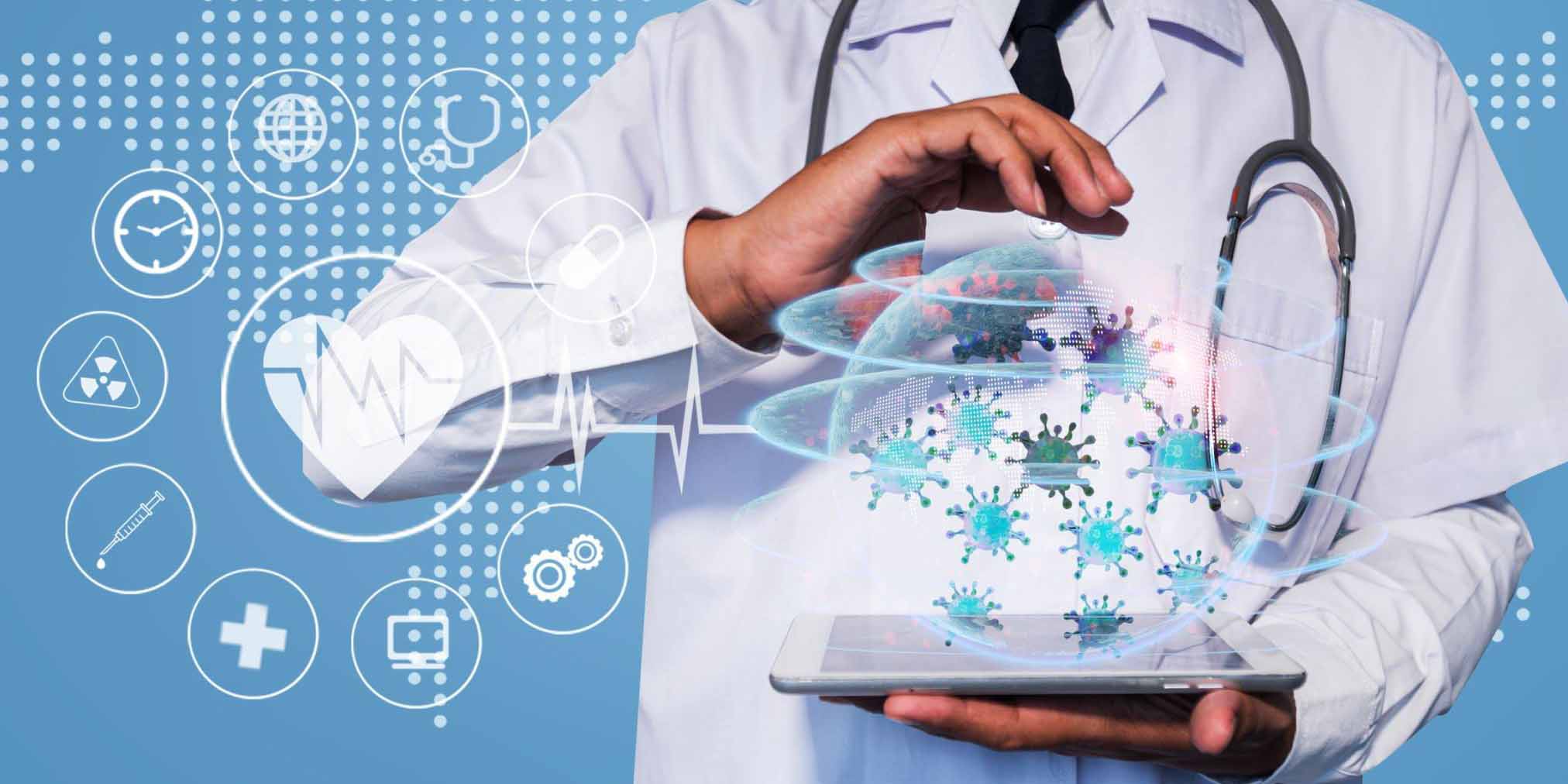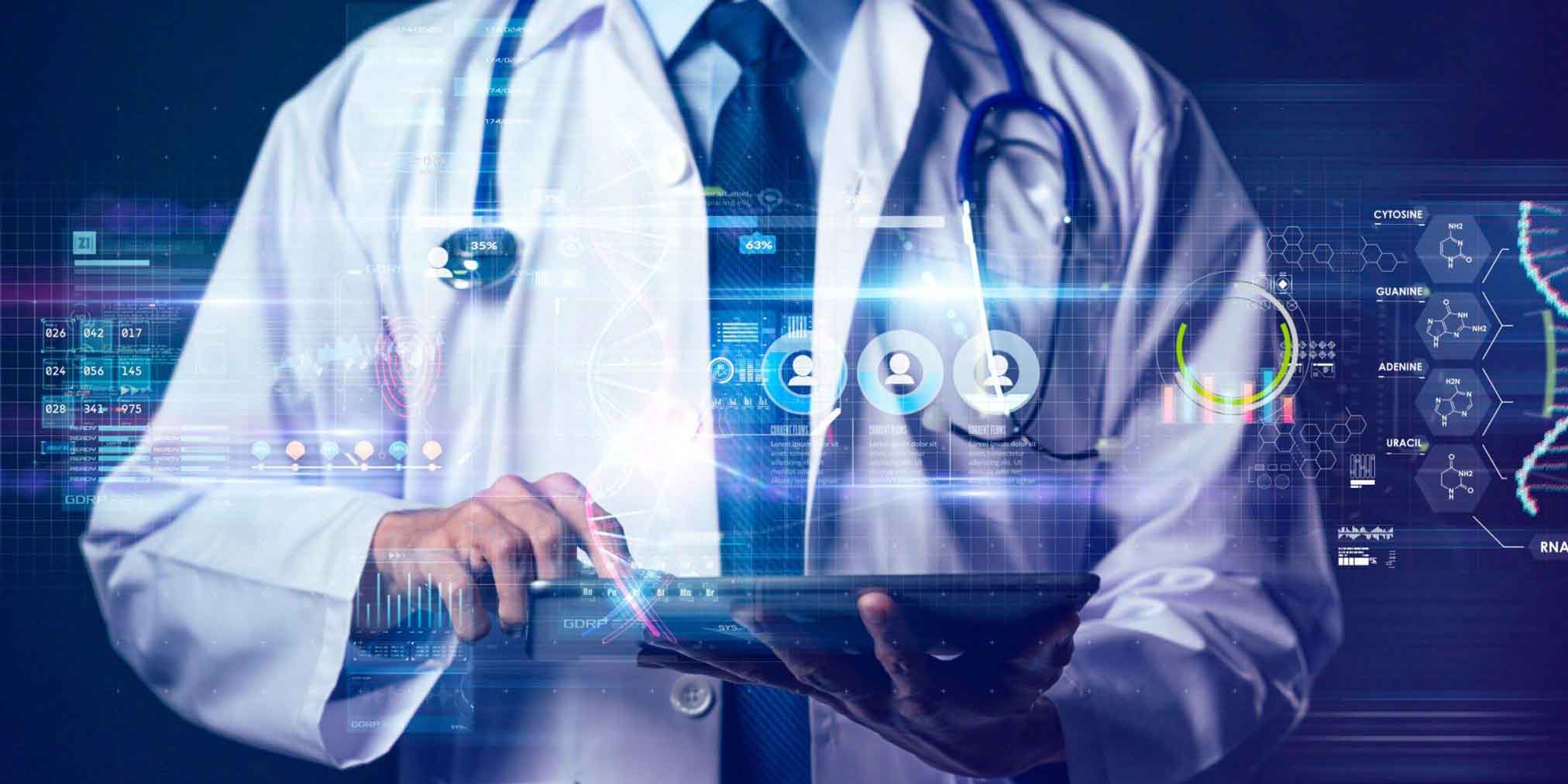

September 5, 2023
Artificial Intelligence (AI) has become an integral part of healthcare diagnosis. AI systems are vital in medicine, from analyzing X-rays to detecting diverse diseases and conditions.
AI solutions in healthcare employ sophisticated algorithms, advanced image recognition, and predictive analytics. This enables them to identify infectious diseases quickly and accurately, surpassing previous capabilities.
Healthcare providers utilize AI to uncover subtle signs and patterns in patient data. This allows them to analyze complex information that would be challenging for human medical teams. As this technology continues to evolve, diagnosis in healthcare will successfully be improved through AI.
One type of AI used for diagnosis is machine learning. It empowers computers to recognize patterns by analyzing and differentiating data sets. The vast data involved in such systems enable robust assessments of disease and recommendations for treatments.
Machine learning’s adaptability to new input data makes it highly valuable in the field of diagnosis. In addition, machine learning can reduce the time a physician needs to spend individually processing patient requests. This makes diagnoses much faster than before.
Natural Language Processing (NLP) is quickly becoming an essential tool in the arsenal of healthcare providers. Using various techniques to extract relevant information from complex data sets, NLP analyses human language.
With AI solutions for healthcare, doctors can accurately diagnose patients based on their verbal symptoms. AI automatically puts together what would normally require much more time for traditional analysis.
Furthermore, NLP can draw correlations between factors that could shed light on unknown conditions or offer new treatment options. In short, ongoing advancements in NLP empower healthcare professionals to diagnose patients more quickly and confidently. These improvements have the potential to enhance overall patient outcomes.

AI solutions in healthcare have revolutionized medical imaging by implementing computer vision algorithms. Computer Vision can analyze medical images like X-rays or MRI scans. It enables them to identify and pinpoint abnormalities that may indicate various conditions.
Using advanced image recognition techniques, AI-powered computer vision systems can accurately detect subtle signs and patterns within the images. These signals, which may be difficult for human interpretation, provide valuable insights for improved treatment planning.
The integration of computer vision into AI solutions has the potential to improve the following:
In the field of health tech, Artificial Intelligence is being used as powerful tool for disease screening and prevention. AI is allowing healthcare professionals not only to detect diseases in their early stages but also to monitor them better than before.
For example, AI can analyze high-resolution images like MRI or X-rays for disease indicators such as cancer or heart attack. AI systems are also able to analyze data from medical records and patients’ biometric sensors to enable early diagnosis of conditions like diabetes.
By using predictive algorithms, doctors can now accurately and quickly assess risk factors for a wide range of illnesses. AI’s innovative applications revolutionize healthcare by improving the detection, diagnosis, and monitoring of medical conditions faster and more effectively.
AI is being used in the drug discovery and development process. AI technologies can rapidly analyze vast amounts of data about diseases, clinical trials, and patient outcomes to inform the drug development process.

By mining this data quickly and efficiently, AI allows pharmaceutical companies to develop more effective drugs in less time. In addition, AI has been used to identify previously unseen connections in molecular biology that allow for more accurate drug targeting and enrollment for clinical trials.
Improved disease progression patterns and therapeutic biomarkers established by sophisticated algorithms enable faster development of new treatments.
AI solutions in healthcare have brought us to a point where AI technology is used directly to assist in diagnosis. One area that has seen major change is electronic health record (EHR) analysis.
By leveraging vast datasets, AI algorithms can use available information – such as medical history, doctor’s notes, lab tests, etc. – to better understand a patient’s condition. Moreover, these same algorithms can uncover patterns across multiple patients and suggest treatments that have been effective in past cases.
AI is an emerging technology used to facilitate diagnoses in various healthcare settings. AI aids medical personnel in rapidly assessing likely diagnoses based on patient symptoms and external indicators.
Moreover, deeper data analysis generates preventative strategies to reduce the likelihood of illness development. The combination of advanced analytics and automation makes AI a valuable asset to health professionals. It strives to provide effective patient care and enhance public health outcomes.